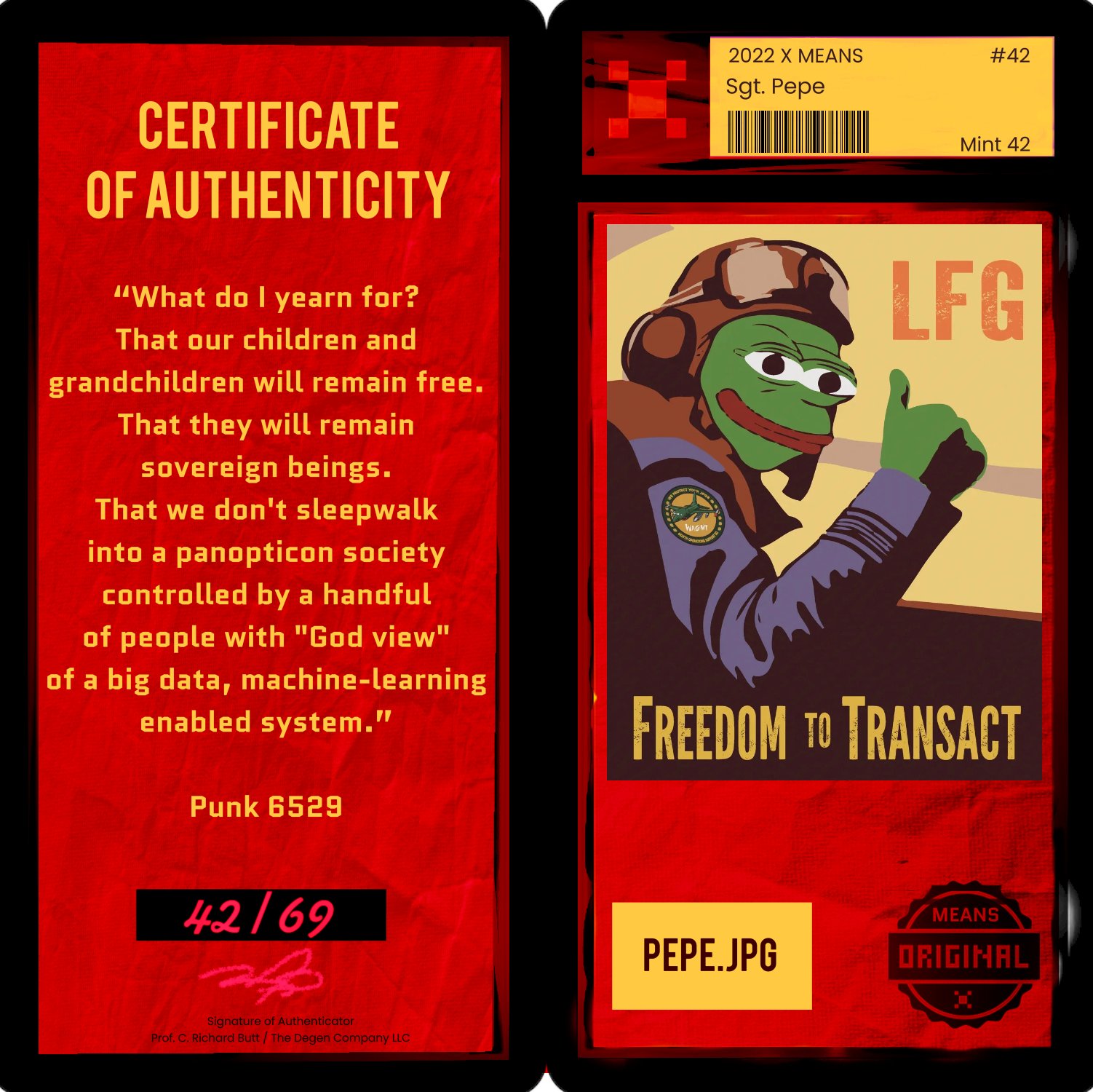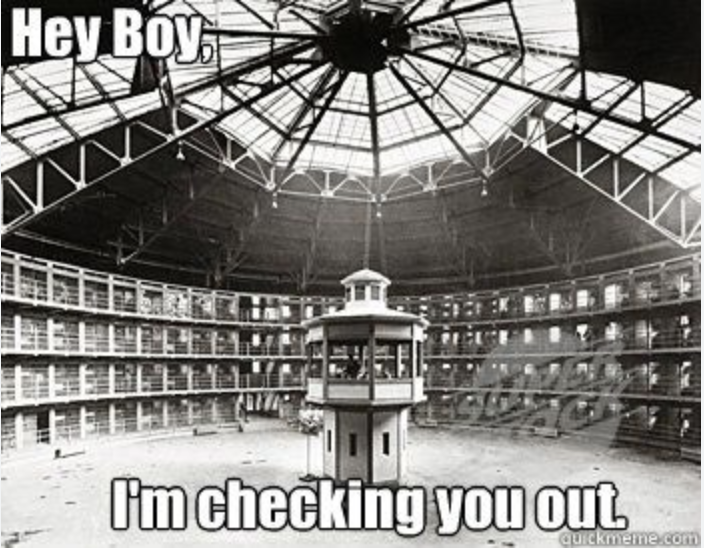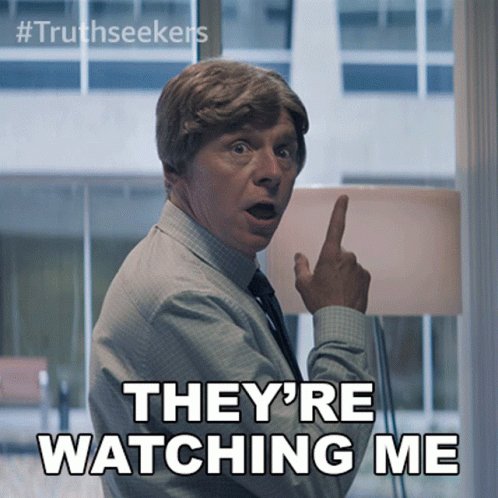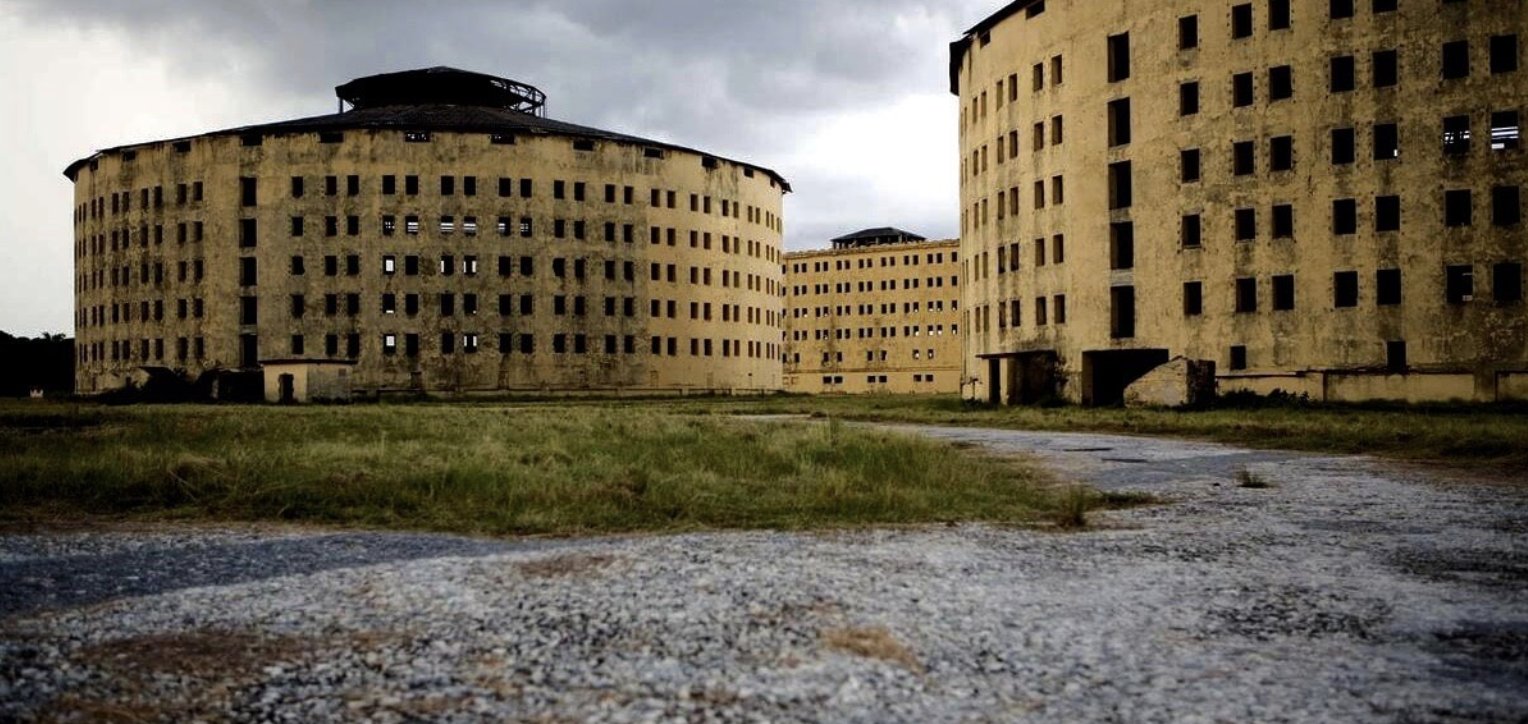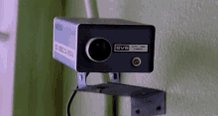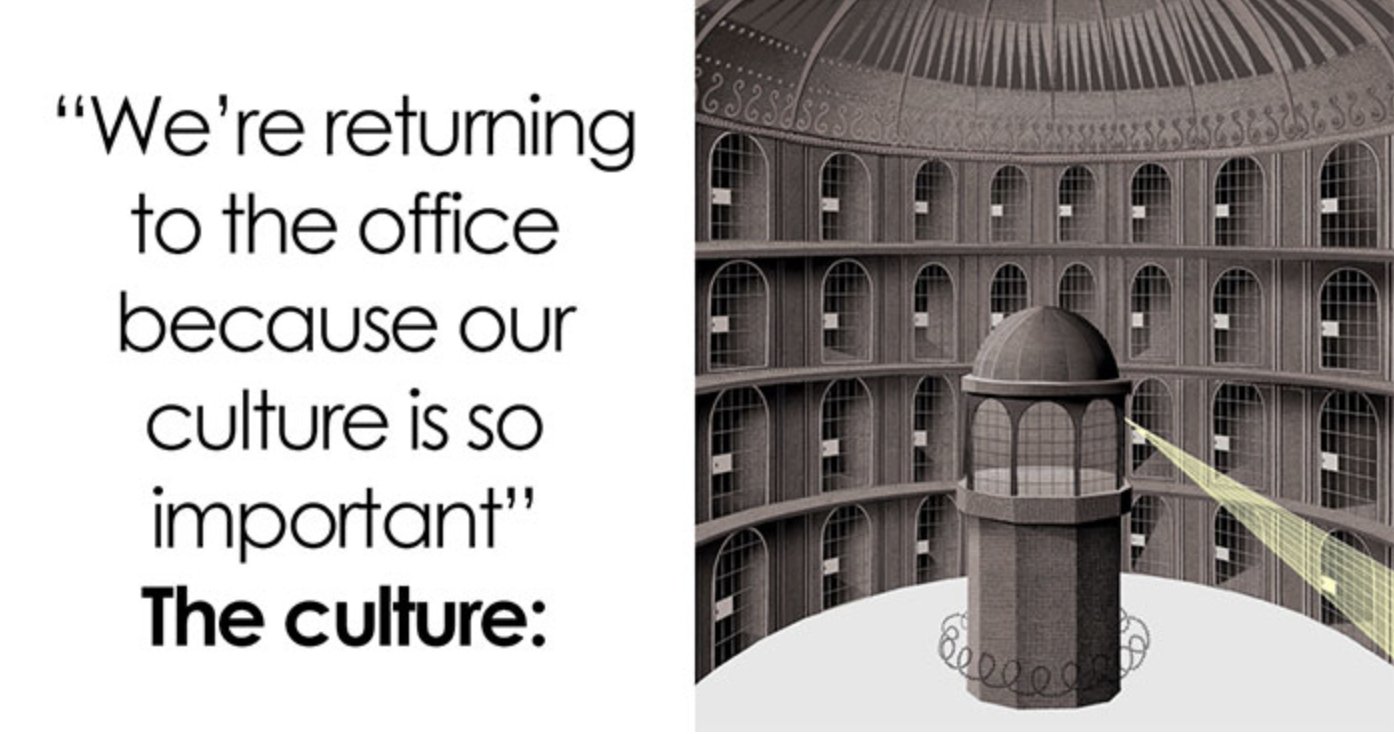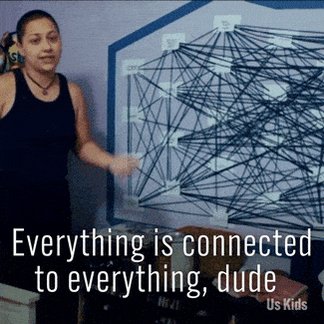Thread
One word in this quote led us to write up a thread to connect its meaning to this Meme and Means piece.
It's more of a long tweetstorm.
It's also a little spooky.
But if you're not easily spooked, read on 👇
It's more of a long tweetstorm.
It's also a little spooky.
But if you're not easily spooked, read on 👇
1/
Panopticon – the word used by @punk6529 in this quote in the @Ars0nic Sgt. Pepe Means piece. We went looking for more of its meaning and, boy oh boy, what a rabbit hole.
We went down it so you don’t have to.
Let's go 😬
Panopticon – the word used by @punk6529 in this quote in the @Ars0nic Sgt. Pepe Means piece. We went looking for more of its meaning and, boy oh boy, what a rabbit hole.
We went down it so you don’t have to.
Let's go 😬
2/
Panopticon comes from the latin opticon (observe) and pan (all). With this meaning, you could more or less conclude that it isn’t a good thing.
Well, you’d be right. It’s a terrible thing. In various ways.
Panopticon comes from the latin opticon (observe) and pan (all). With this meaning, you could more or less conclude that it isn’t a good thing.
Well, you’d be right. It’s a terrible thing. In various ways.
3/
The concept was originally created by Jeremy Bentham, an English philosopher, in 1785. He got the idea for a Panopticon structure after visiting his brother, Samuel, in Russia. Samuel worked in a factory and devised a way to train and supervise unskilled workers.
The concept was originally created by Jeremy Bentham, an English philosopher, in 1785. He got the idea for a Panopticon structure after visiting his brother, Samuel, in Russia. Samuel worked in a factory and devised a way to train and supervise unskilled workers.
4/
He rearranged the workers around his desk so he could directly observe them. He could then correct and help them to better perform their job. It was a good application of what is called the central observation method - someone at the center observing those around them.
He rearranged the workers around his desk so he could directly observe them. He could then correct and help them to better perform their job. It was a good application of what is called the central observation method - someone at the center observing those around them.
5/
But good old Jeremy saw much more potential in this method. He designed an architectural structure representing what he had seen his brother do: one central observation deck or tower surrounded by those being observed.
But good old Jeremy saw much more potential in this method. He designed an architectural structure representing what he had seen his brother do: one central observation deck or tower surrounded by those being observed.
6/
He designed the panopticon to be used in the construction of prisons, but he also thought it could be applied to schools, factories and hospitals, for example. Jeremy believed his “simple idea in architecture” could reform morals, preserve health and diffuse instructions.
He designed the panopticon to be used in the construction of prisons, but he also thought it could be applied to schools, factories and hospitals, for example. Jeremy believed his “simple idea in architecture” could reform morals, preserve health and diffuse instructions.
7/
So, right about now, you wouldn’t be blamed for thinking “Hey! Not a totally bad idea, actually!”. But, no.
Jeremy wanted the panopticon to mark “a new mode of obtaining power of mind over mind, in a quantity hitherto without example.”
So, right about now, you wouldn’t be blamed for thinking “Hey! Not a totally bad idea, actually!”. But, no.
Jeremy wanted the panopticon to mark “a new mode of obtaining power of mind over mind, in a quantity hitherto without example.”
8/
And how would it do that? Easy.
The basic setup of a Panopticon is a building containing a central tower. This tower is surrounded by cells. The watchman sits in the central tower and the cells can have inmates, children, workers – all depending on the use for the building.
And how would it do that? Easy.
The basic setup of a Panopticon is a building containing a central tower. This tower is surrounded by cells. The watchman sits in the central tower and the cells can have inmates, children, workers – all depending on the use for the building.
9/
From the tower, a bright light shines towards the cells so the watchman can see everyone and everything that happens in the cells. However, the people in the cells aren’t able to see the watchmen and don’t know when they are being observed.
From the tower, a bright light shines towards the cells so the watchman can see everyone and everything that happens in the cells. However, the people in the cells aren’t able to see the watchmen and don’t know when they are being observed.
10/
What does this lead to? The assumption that they are ALWAYS being observed. And what do people who think they are being observed by a watchman do? They behave and follow the rules. They obey.
What does this lead to? The assumption that they are ALWAYS being observed. And what do people who think they are being observed by a watchman do? They behave and follow the rules. They obey.
11/
Our Jeremy never saw a panopticon built in his lifetime (bummer) but there are buildings throughout the world that incorporate part of its design.
The closest to the real deal? The Presidio Modelo, built in 1926 in Cuba (closed in 1967).
Our Jeremy never saw a panopticon built in his lifetime (bummer) but there are buildings throughout the world that incorporate part of its design.
The closest to the real deal? The Presidio Modelo, built in 1926 in Cuba (closed in 1967).
12/
So, the panopticon was more or less a dud. Great! Until the French philosopher Michel Foucault revived interest in the panopticon in his 1975 book Discipline and Punish.
So, the panopticon was more or less a dud. Great! Until the French philosopher Michel Foucault revived interest in the panopticon in his 1975 book Discipline and Punish.
13/
He used the panopticon as a way of showing the tendency that disciplinary societies have to subjugate and control their citizens (we all live in one – if there are jails, fines, and rules you mustn’t break or else in your country, you live in a disciplinary society).
He used the panopticon as a way of showing the tendency that disciplinary societies have to subjugate and control their citizens (we all live in one – if there are jails, fines, and rules you mustn’t break or else in your country, you live in a disciplinary society).
14/
Foucault describes the prisoner of a panopticon as being at the receiving end of asymmetrical surveillance: “He is seen, but he does not see; he is an object of information, never a subject in communication.” As a result, the inmate polices himself to not get punished.
Foucault describes the prisoner of a panopticon as being at the receiving end of asymmetrical surveillance: “He is seen, but he does not see; he is an object of information, never a subject in communication.” As a result, the inmate polices himself to not get punished.
15/
This form of control was dubbed “Disciplinary power” by Foucault. He thought society was full of it and used the panopticon as a metaphor for how power relations and social coercion operate in the modern world.
This form of control was dubbed “Disciplinary power” by Foucault. He thought society was full of it and used the panopticon as a metaphor for how power relations and social coercion operate in the modern world.
16/
Let’s bring this to the 21st century: CCTV. These cameras are usually in full view of everyone and people are constantly reminded that they are under surveillance by someone in authority. We quickly learn to monitor and control behavior, whether we see a camera or not.
Let’s bring this to the 21st century: CCTV. These cameras are usually in full view of everyone and people are constantly reminded that they are under surveillance by someone in authority. We quickly learn to monitor and control behavior, whether we see a camera or not.
17/
Modern-day panopticons may not require a tower and a bright light, but they work just as well on a dual scale: to catch those breaking laws and to act as a deterrent to breaking those laws. People know the consequences if they do.
Modern-day panopticons may not require a tower and a bright light, but they work just as well on a dual scale: to catch those breaking laws and to act as a deterrent to breaking those laws. People know the consequences if they do.
18/
It doesn’t matter if a CCTV camera is even on – just knowing that one is there will influence behavior. We will police ourselves into behaving in a non-rule-breaking way.
It has its ups (safety, security) and its downs (loss of privacy, behavioral changes, zombie societies).
It doesn’t matter if a CCTV camera is even on – just knowing that one is there will influence behavior. We will police ourselves into behaving in a non-rule-breaking way.
It has its ups (safety, security) and its downs (loss of privacy, behavioral changes, zombie societies).
19/
For Foucault, the danger of this constant observation is that it creates a society of conformists, who are too afraid to act as individuals for fear of punishment. In the extreme, this is undemocratic and eradicates independent thinking and actions.
For Foucault, the danger of this constant observation is that it creates a society of conformists, who are too afraid to act as individuals for fear of punishment. In the extreme, this is undemocratic and eradicates independent thinking and actions.
20/
So, what does this have to do with the Memes?
Everything.
We cannot risk walking into a scenario where we are constantly surveyed and lead to fall in line for fear of punishment from a central authority or authorities.
So, what does this have to do with the Memes?
Everything.
We cannot risk walking into a scenario where we are constantly surveyed and lead to fall in line for fear of punishment from a central authority or authorities.
21/
What punishment?
Banks can close your account if you buy something from the wrong company or person (this already happens). You could lose freedoms by simply exercising rights you have but that are not convenient to those in power.
What punishment?
Banks can close your account if you buy something from the wrong company or person (this already happens). You could lose freedoms by simply exercising rights you have but that are not convenient to those in power.
22/
Protest the government? Get your whole financial history pulled up and frozen.
Use cash instead of cards? Get questioned as to why you would want to be sneaking around out of the system.
Protest the government? Get your whole financial history pulled up and frozen.
Use cash instead of cards? Get questioned as to why you would want to be sneaking around out of the system.
23/
When the word centralization pops up, it should be seen as a god-like surveillance system that takes over everything in everybody’s lives.
This is happening already. Social credits, social scorings to get access to special services or basic stuff like apps.
When the word centralization pops up, it should be seen as a god-like surveillance system that takes over everything in everybody’s lives.
This is happening already. Social credits, social scorings to get access to special services or basic stuff like apps.
24/
The Freedom to Transact is the freedom from which all others branch out. Without it, we have nothing. Only orders to follow and someone to obey. If we can’t even freely spend our money where we want, you think they’ll let you freely do anything else?
The Freedom to Transact is the freedom from which all others branch out. Without it, we have nothing. Only orders to follow and someone to obey. If we can’t even freely spend our money where we want, you think they’ll let you freely do anything else?
